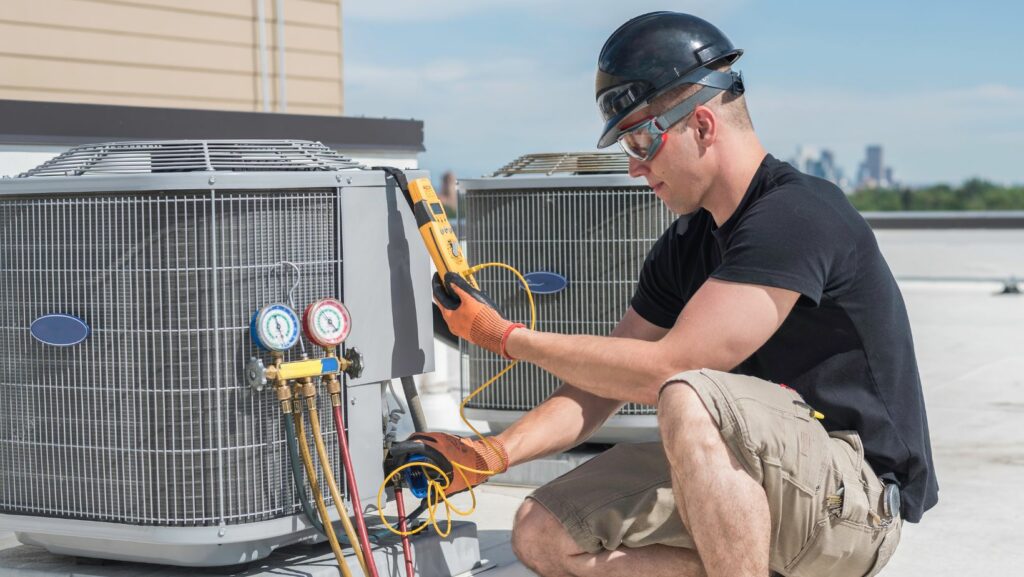Breathing in fresh, clean air isn’t just a luxury; it’s a necessity. Yet, many are oblivious to the fact that the air inside their homes can be more polluted than the air outside. That’s where your HVAC system comes into play, notes Dawson Property Management group.
Your HVAC system isn’t just a temperature regulator; it’s a vital component in maintaining the quality of your indoor air. With a few simple tweaks and regular maintenance, you can transform your HVAC system into an efficient air purifier.
In this article, we’ll delve into the world of HVAC systems and indoor air quality. We’ll explore how to optimize your HVAC system to create a healthier, more comfortable living environment. So, get ready to breathe easy and live well.
Understanding Indoor Air Quality and HVAC Systems
Gaining insight into indoor air quality and HVAC systems provides crucial knowledge for maintaining a healthier living environment.
What Is Indoor Air Quality?
Indoor air quality represents the air purity in and around buildings and structures, encompassing the health and comfort of those occupying them. Factors like pollutants, allergens, humidity, and temperature variations all influence indoor air quality. For example, if harmful particles such as dust mites, mold spores, or pollen pervade a home excessively, it diminishes the quality of the indoor air, leading to potential health implications.
How HVAC Systems Affect Air Quality
HVAC systems play a defining role in indoor air quality management. By circulating and filtering air throughout a building, HVAC systems can actively control and improve the quality of indoor air. For instance, HVAC systems filter out harmful particulates from the air while maintaining optimal temperature and humidity levels, thereby enhancing the air indoors. Additionally, comprehensive Vancouver HVAC repair services ensure HVAC systems function optimally, further positively impacting indoor air quality. Lack of regular maintenance can lead to compromised system efficiency and a decline in air quality.
Key Strategies to Improve Air Quality via HVAC
Harnessing the full potential of HVAC systems provides an effective means to improve indoor air quality. Here’s a closer look at two impactful strategies: regular maintenance and upgrading HVAC filters.
Regular Maintenance and Cleaning
Standard procedure involves routine maintenance and comprehensive cleaning of HVAC components. This ensures removal of dust, debris, and microbial growth, often lurking in parts like air ducts and cooling coils.

A source such as comprehensive Vancouver HVAC repair services can verify and deliver periodic maintenance to uplift air quality. Additionally, cleaning is deemed necessary once every three years, if conditions are favorable for system functionality. However, if an individual suffers from allergies, cleaning could be conducted more frequently.
Upgrading HVAC Filters
An upgrade to HVAC filters marks a major stride toward better air quality. Most systems come with a standard filter, typically with a Minimum Efficiency Reporting Value (MERV) rating of 1–4. This format, while economical, proves less effective in filtering out smaller pollutant particles. Therefore, experts advocate for filters exhibiting MERV ratings of 7 or above. Higher-rated filters, although pricier, trap and eliminate more contaminants, contributing to cleaner, healthier indoor air. As always, certain specialist services, such as comprehensive Vancouver HVAC repair services, can assist in choosing and installing filters that best suit individual needs and HVAC system requirements.
Additional HVAC Enhancements for Better Air Quality
Beyond regular upkeep and upgrading filters, two additional enhancements can go a long way: installing UV lights and using dehumidifiers and humidifiers. These further strategies work alongside the common maintenance tasks to boost indoor air quality drastically.
Installing UV Lights
Ultraviolet (UV) lights, when appropriately installed in HVAC systems, become a potent tool against microorganisms. These lights emit UV radiation, which is lethal to bacteria, viruses, and mold spores. By exposing recirculated air to UV radiation, the microbial load in indoor air experiences drastic reduction. The type, number, and positioning of UV lights in an HVAC system vary based on several factors, making it an intervention best left to professionals such as those providing comprehensive Vancouver HVAC repair services.
Using Dehumidifiers and Humidifiers
At extremes of humidity, indoor air quality suffers. Too much humidity encourages mold growth, while too little causes dryness that aggravates respiratory illnesses. Standalone humidifiers and dehumidifiers can help manage household humidity levels. HVAC-integrated systems offer a seamless solution, regulating indoor humidity as part of the heating or cooling cycle. To determine the most effective way to manage humidity in a specific setting, professional advice from experienced Vancouver HVAC repair services can be invaluable.
Evaluating HVAC Upgrades and Costs
Evaluating HVAC upgrades and costs demands critical thinking. To ensure optimal indoor air quality, sometimes, it’s necessary to upgrade beyond filters and auxiliary devices. Consider the timing for a full system upgrade, and execute a cost-benefit analysis for these HVAC enhancements.
When to Consider a Full System Upgrade
A full HVAC system upgrade becomes essential under specific circumstances. For instance, if the current system struggles to regulate temperature and humidity levels effectively or the system routinely endures breakdowns, an upgrade may be in order.

Other signs include frequent need for professional services like comprehensive Vancouver HVAC repair services, or if the property recently underwent significant expansions or renovations, affecting the load on the HVAC system.
Cost-benefit Analysis of HVAC Upgrades
While a full HVAC system upgrade can result in a sizable financial investment, the benefits often outweigh the initial costs. To perform a cost-benefit analysis, calculate the projected energy savings from a more efficient system and the decrease in frequent repair costs. Additionally, consider the value of improved air quality – a reduction in potential health risks and a general boost to wellbeing. For detailed calculations, it’s advisable to consult with professionals from comprehensive Vancouver HVAC repair services who can provide in-depth insights. Overall, diligent cost-benefit analysis ensures smart investment in HVAC upgrades, aligning with individual needs and budget.


More Stories
Beyond Basic Photo Framing: Creating Artistic Keepsakes
Predictive Betting Models Used by Aussie Gamblers: Advanced Approaches to Wagering in 2025
What Should You Look for When Purchasing a Premium Men’s Linen Shirt?